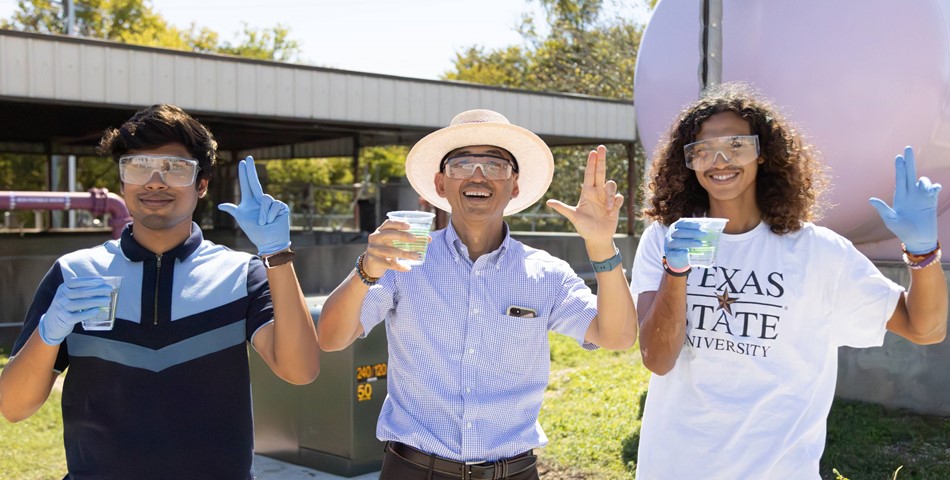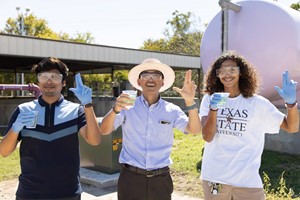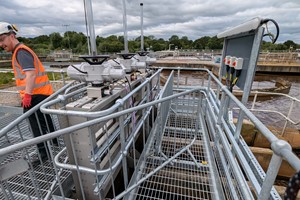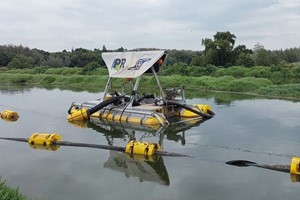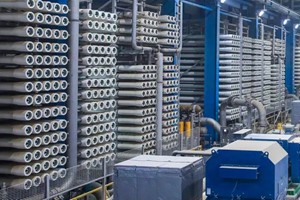Researchers from Texas State University’s Ingram School of Engineering are implementing innovative wastewater treatment methods to improve the quality and aesthetics of reusable water.
Led by Dr. Keisuke Ikehata, assistant professor of civil engineering, the research team is on a mission to demonstrate that purified wastewater is clean and aesthetically pleasing for everyday use.
Texas’ rapid population growth combined with ongoing drought conditions has led to water shortages across the state. In the face of this challenge, Dr. Ikehata sees an opportunity for the public to embrace the idea of using treated wastewater for daily needs, a process referred to as potable water reuse.
“For every 1,000 new people, we need about 100,000 to 150,000 gallons of new water every day, and it’s getting harder for water utilities to find water resources to tap into, but we can’t say, ‘Oh no! We ran out of water in Texas, please don’t come here,’ ” said Ikehata.
“We still have many underutilized water sources in Texas including wastewater that we can make use of to keep welcoming newcomers.”
Dr. Ikehata and his team of student researchers are currently piloting an advanced water purification system at the San Marcos Wastewater Treatment Plant. The facility discharges over 5 million gallons of treated wastewater back to the San Marcos River each day that is safe for wildlife and the environment. Dr. Ikehata’s team is aiming to show that their treatment and purification methods can create water that is not just safe for the environment, but also colorless, odorless, and pleasant tasting.
Carlos Espindola, a graduate engineering student who’s assisted Dr. Ikehata since 2021, says that the water purification project has made him more appreciative of water treatment efforts and he feels hopeful that similar efforts will be more widely used in the near future.
“I really enjoy the hands-on experience that I am getting from working on my research project. The process of designing and operating the advanced water purification system has given me a lot of insight on how much energy and effort it takes to produce clean drinking water,” says Espindola.
“I believe that potable reuse will soon play a key role in water supply projects around the United States.”
Rasha Khan, a graduate student who also assists with Dr. Ikehata’s research, says that changing the public perception of wastewater is a challenging but necessary battle to fight.
“We need to bring the progress of ours and other wastewater treatment projects to the public’s attention and change their perspective of wastewater being just smelly and dirty,” said Khan.
“This understanding is essential for building public trust and acceptance of using treated wastewater as a sustainable and reliable water source.”
Dr. Ikehata is one of the four founding members of the TXST civil engineering program. He also serves as faculty advisor to the Texas State chapter of the Texas American Water Works Association. His lifelong passion for water and wastewater treatment has led to a dedicated career of water treatment efforts for which he’s received numerous awards including the Reuse Impact Award from WateReuse Texas in September 2023.



